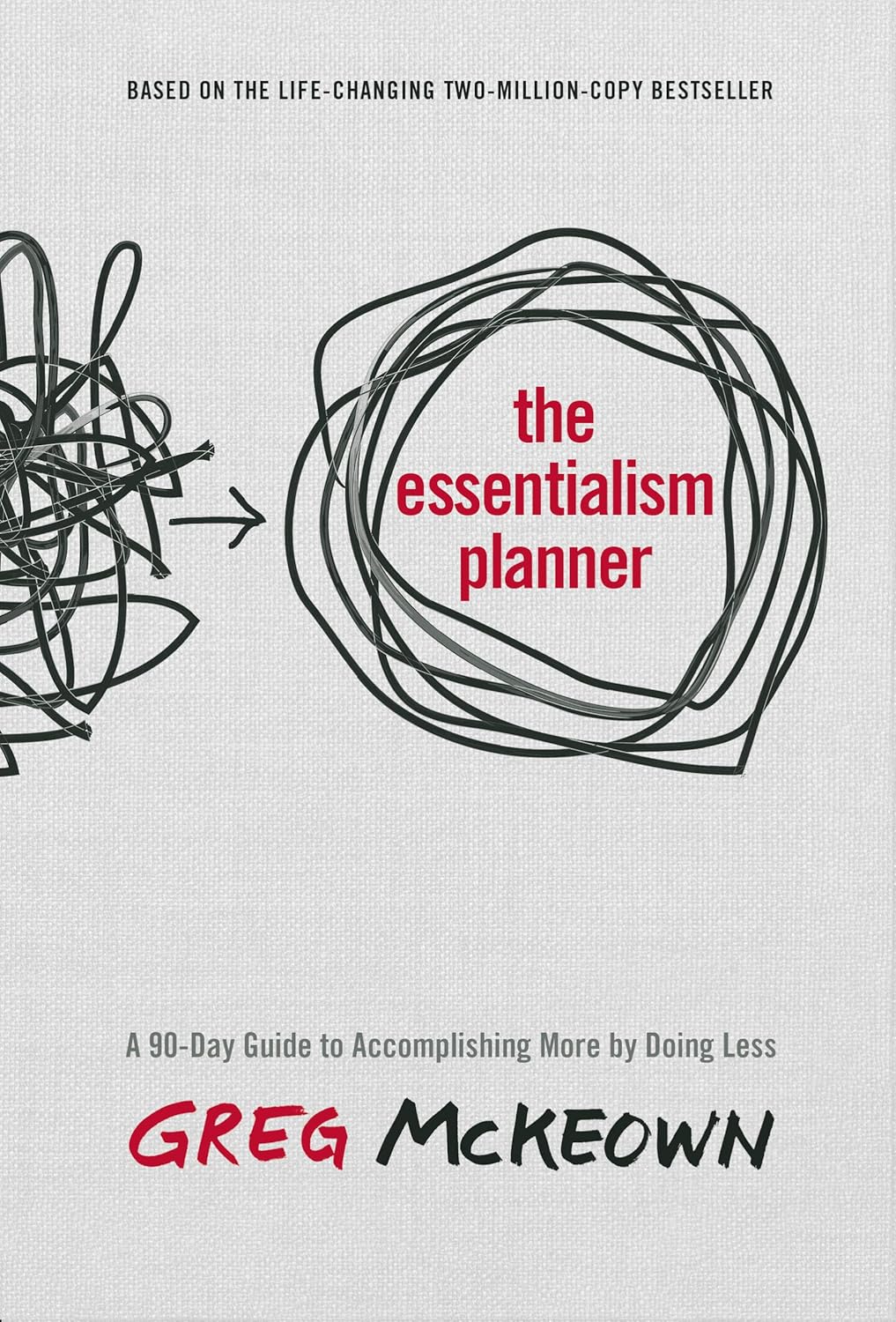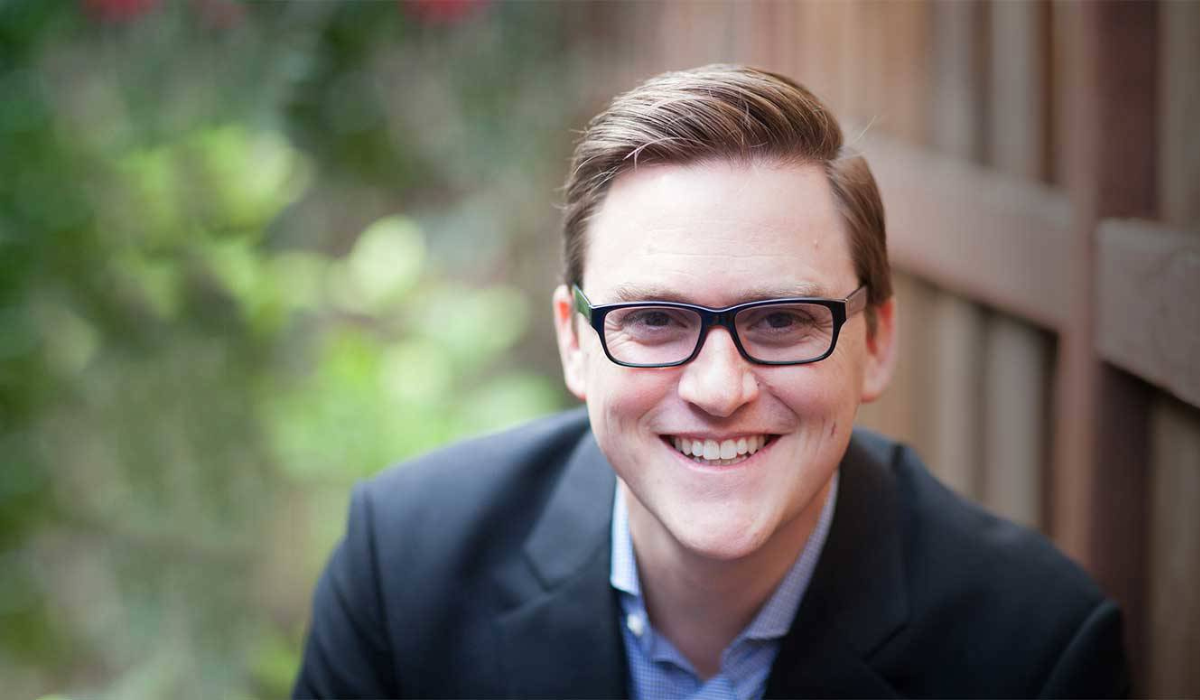There’s a Trick to Accomplishing More by Doing Less—and Author Greg McKeown Says It’s the Best Way to Feel Calmer in Crazy Times
Greg McKeown’s wife was days away from giving birth when his manager at the time told him, “Friday between 1 and 2 p.m. would be a very bad time for your wife to have a baby, because you need to be at this client meeting.”
It was an ah-ha moment for McKeown. “I’m sure my manager was joking—or at least half joking—but I still felt pressure,” McKeown says. “And when our daughter was born early Friday morning, I had my phone on, laptop out, and I went to the meeting instead of being focused on my wife and daughter.”
That moment taught McKeown an important lesson: If you don't prioritize your life, someone else will. Since then, he’s been on a mission to help the rest of get our priorities straight with his mega-bestselling book, Essentialism: The Disciplined Pursuit of Less, and his newest book, The Essentialism Planner: A 90-Day Guide to Accomplishing More by Doing Less.
This week, The Sunday Paper sat down with McKeown to learn how, exactly, to become an essentialist—and why it’s a proven way to rise above the noise of this busy season and focus on what matters most.
A CONVERSATION WITH GREG McKEOWN
This time of year can feel like one big quest for more. How can we take some of the principles of your book, Essentialism, and apply them to our lives right now to usher in more calm?
For most people, life can feel overwhelming given family and work responsibilities. So many of us have a lot of people we answer to. One of the things I advocate for is to take control of a half hour each day. If you use that time right, it can improve every other minute of the other twenty-three and a half hours that you have. Something I wrote in Essentialism is that if you don’t create space to think, there won’t be any.
So, what do you do during that half hour? Well first, it's device free. It could be the first half hour of the day, the last half hour of the day, or any time you can fit it in. It’s a period in which you free write for six minutes—and no more than six minutes—to just get all the noise that's in your head down on paper. Once you get the noise out of your head, you can look at it. Then, ask yourself, “So what?” What does the noise mean? What is the news in my life today? Are you overwhelmed? Do you need to take a break? Do you need to write down the most important things so you’re on your A-game today?
Then, ask: “Now what?” The highest priority in your life is what to schedule first. What I’ve learned is the highest priority tends to be the least likely to happen for most of us. Then, name the what’s essential and urgent to get done. Finally, list the maintenance items that need to be done—the things if you don’t do today, life will be harder tomorrow.
Even if you feel like taking a half hour is impossible, just ask those questions: So what? Now what? It’s a helpful thought process to try and orient ourselves in a world that’s just drowning in noise.
An important takeaway from your books is that if you don’t prioritize your life, someone else will. What do you mean by this?
You have to take responsibility for the prioritization, and that that takes discernment. And of course, this comes back to creating space.
There's a tool that I have used and found very helpful, which is the “Said No To” list: Every time you say “no” to something, write it down. This does two things for you: One, it reminds you that you can say no—that it’s not a completely new skill. And two, it’s a chance to review what you say “no” to, to help you make sure you’re not saying “no” to some things you wish you’d said “yes” to. Ideally, you want to be saying “no” to enough, eliminating enough, simplifying enough in your life that there are some things that make you say, “Maybe we should put that back in.”
Most people live in a default where they're doing too much, saying “yes” to too much, over-committing to too much, that they are constantly on the go and feeling like there is just too much going in in their lives.
You write that sometimes, we have to “uncommit” to things which can be so hard to do because of the impact it has on others. Any advice on this front?
Ten years ago, I was under contract to create The Essentialism Planner—and I had to uncommit. I started working on it and got to the point where I thought, I just don’t think I have anything unique or beneficial or different enough that justifies putting another journal out in the world. After a few months of working on the planner, I said to my editor, “I just have to ask to get out of this right now. I don’t think I’m going to do a good job on it. Maybe we can explore it later.”
And we did. This week, ten years later, The Essentialism Planner has been published.
All healthy relationships are built on honesty, and all unhealthy relationships are built on dishonesty. I think that is a pretty solid truism. When you over commit and you're not honest about that, you can create a lot of problems.
Now, this doesn't mean that every time you over commit, the best thing is to uncommit. For example, with my own children, I try to make promises very sparingly and keep them faithfully. It’s important to be very careful in committing. For example, I use the words “I promise” with my children very, very sparingly. But then, but there are times when uncommitting from something is important if you are being honest.
Tell us about your new book, The Essentialism Planner. How are you hoping readers will use it?
There’s a week during the holiday season that feels different than the rest of the year—after Christmas and Hannukah and before the new year. I realize there’s often a lot going on that week, but I also think it provides a precious opportunity to carve out some time to start going through the planner.
There’s a “quarterly off-site” that I believe can help anybody to into the new year with intention. It’s a chance to get away from the reactive, meeting-to-meeting pulse that can lead to otherwise intelligent people being tricked by the trivial. And it involves thinking about three big questions:
- What’s essential that I’m underinvesting in?
- What’s nonessential that I’m overinvesting in?
- How can I make it effortless to get the most important things done?
The Essentialism Planner will help guide you through these questions and many more, to help give you clarity on what important adjustments you want to make in the new year and beyond.

Greg McKeown is the author of two New York Times bestsellers: “Essentialism: The Disciplined Pursuit of Less,” and “Effortless: Make It Easier to Do What Matters Most.” He also hosts The Greg McKeown Podcast. To learn more, visit gregmckeown.com.
Please note that we may receive affiliate commissions from the sales of linked products.



